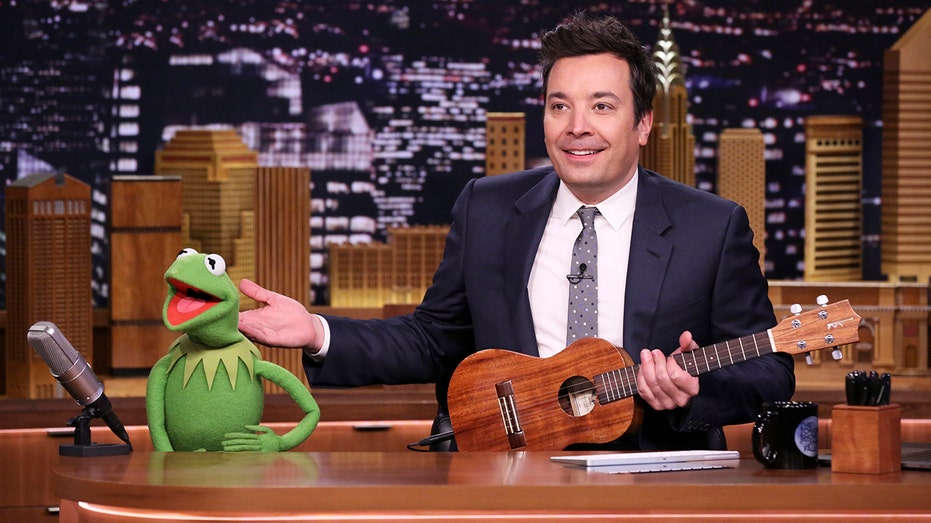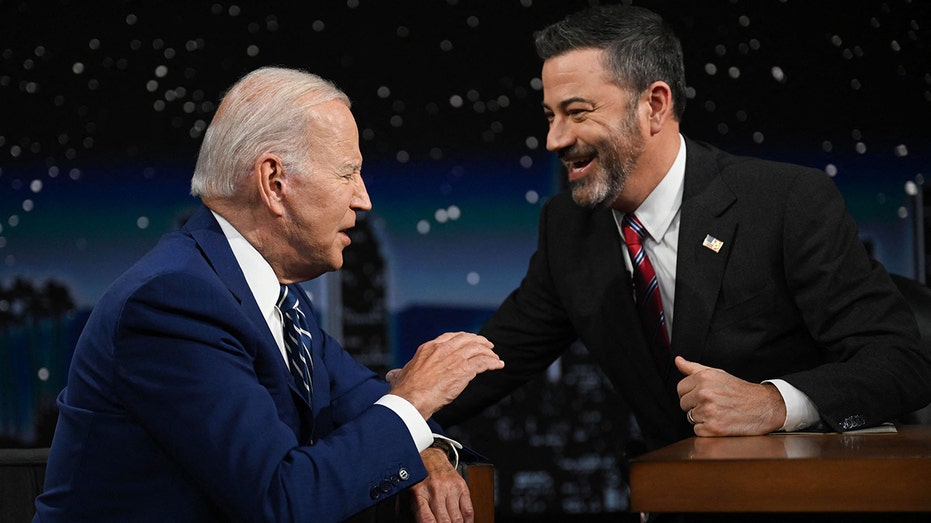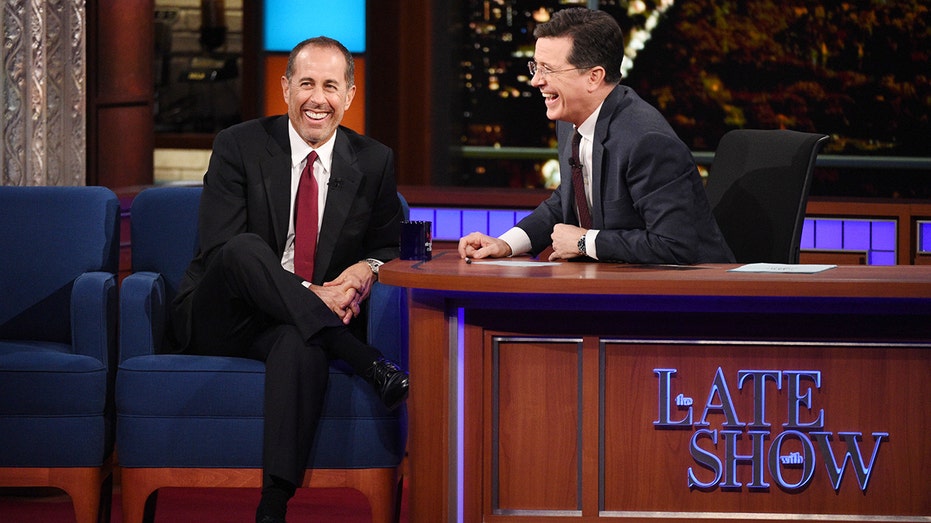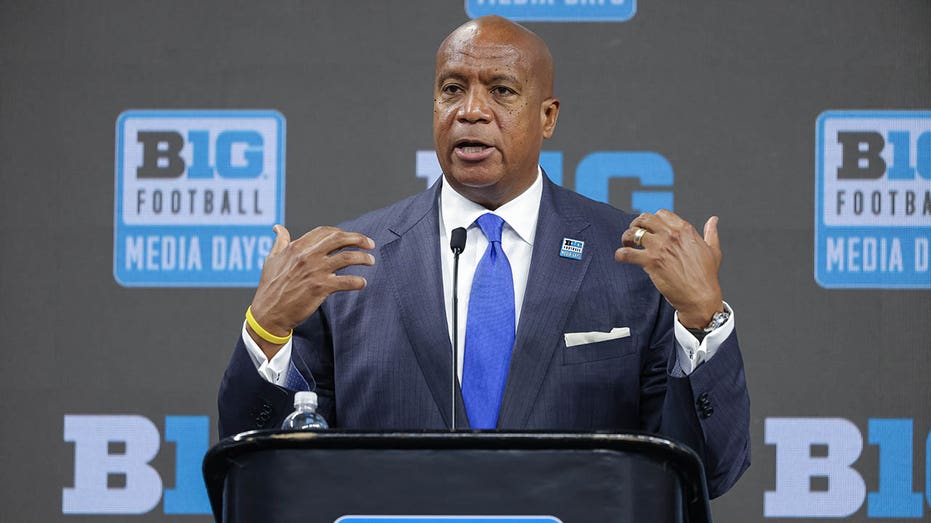NBC considers cutting back programming hours in prime time
Network has discussed giving 10 p.m. hour to local station partners, a cost-cutting move as interest in broadcast TV wanes
NBC is considering reducing the number of hours it programs in prime time, people familiar with the matter said, a cost-cutting move that would reflect broadcast television’s diminishing popularity.
Under the scenario being discussed, NBC would stop programming the 10 p.m. to 11 p.m. hour and give those seven hours per week to local TV stations to program, the people said.
The talks are preliminary and it is possible that NBC will decide to continue to program the 10 p.m. hour, one of the people said. NBC hasn’t officially discussed the matter with its affiliate board, a group that represents station partners, two people close to that organization said. The earliest such a shift could take place would be the fall of 2023.

THE TONIGHT SHOW STARRING JIMMY FALLON on January 7, 2019 -- (Photo by: Andrew Lipovsky/NBC/NBCU Photobank)
COMCAST TO SELL ITS STAKE IN NBC SPORTS WASHINGTON
If NBC did drop the hour, it would have to decide which shows in its lineup would get cut. The network currently airs mostly scripted dramas in the 10 p.m. hour. Those could be moved to earlier in the evening to replace other content.
If the plan moves forward, the network likely would seek to move up the start time of its late-night programming block including "The Tonight Show Starring Jimmy Fallon" to 10:30 p.m. or 11 p.m. from 11:30 p.m., one of the people familiar with the matter said. That would give Mr. Fallon a jump on his chief rivals, Stephen Colbert at CBS and Jimmy Kimmel at ABC.
An NBC spokeswoman said: "We are always looking at strategies to ensure that our broadcast business remains as strong as possible. As a company, our advantage lies in our ability to provide audiences with the content they love across broadcast, cable and streaming."
| Ticker | Security | Last | Change | Change % |
|---|---|---|---|---|
| PARA | NO DATA AVAILABLE | - | - | - |
| CMCSA | COMCAST CORP. | 31.37 | +0.52 | +1.69% |
| DIS | THE WALT DISNEY CO. | 108.69 | +3.71 | +3.53% |
The big three broadcast networks—NBC, CBS and ABC—have been programming at least three hours a night since the early days of television. In partnership with local stations across the country, network television was the dominant medium for entertainment and news for decades. It was also the primary way for advertisers to reach a mass audience.
Local stations—some of which are owned by the broadcast networks—program the hours that the networks don’t with content such as daytime talk shows and news.
All the major networks have suffered audience declines for years, facing competition first from cable and then streaming-video. Hits are few and far between while the costs of creating content continue to rise. Advertisers, too, are flocking to streaming and other platforms.

US President Joe Biden speaks with host Jimmy Kimmel as he makes his first in-person appearance on "Jimmy Kimmel Live!" (JIM WATSON/AFP via Getty Images / Getty Images)
Inside the parent companies of the major broadcast networks, the focus has pivoted to streaming. NBC parent Comcast Corp. is giving priority to building its Peacock streaming service. ABC parent Walt Disney Co. and CBS parent Paramount Global are focused on their streaming platforms.
For NBC, cost-cutting is a factor behind the discussions, two people with knowledge of the matter said. By eliminating one hour a night of prime time to schedule, NBC could save tens of millions of dollars in content costs. NBC’s affiliates would likely welcome having extra time to program, so they can earn more ad revenue.
Mark Lazarus, chairman of NBCUniversal Television and Streaming, is spearheading the discussions over cutting down prime-time programming hours, the people familiar with the matter said. He also recently reduced the hours of late night NBC programs, exiting the 1:30 a.m. to 2 a.m. time slot and giving that time back to affiliates.

Jerry Seinfeld on The Late Show with Stephen Colbert, Wednesday Jan. 6, 2016 on the CBS Television Network. Jeffrey R. Staab/CBS Broadcasting Inc.
The broadcast networks already had tweaked their prime-time strategy in recent years, programming fewer sitcoms and dramas in favor of sports and competition shows that viewers generally watch live, such as NBC’s "America’s Got Talent" and "The Voice."
The move comes as NBC is facing increased costs for sports programming, which network executives see as crucial for drawing in viewers. Last week, NBC struck a deal to carry Big Ten college football for the next seven years at an annual price tag of $350 million.
NBC also has a bigger bill coming for its Sunday Night Football franchise. In 2023, its annual fee to the National Football League will double to about $2 billion, The Wall Street Journal previously reported.

Big Ten Commissioner Kevin Warren speaks during the 2022 Big Ten Conference Football Media Days at Lucas Oil Stadium on July 26, 2022 in Indianapolis, Indiana. (Michael Hickey/Getty Images / Getty Images)
Some in NBC’s entertainment unit are resisting a change in the 10 p.m. hour, some of the people said. NBC’s sister studio, Universal Television, provides a lot of content for the network and could lose out. In addition, Peacock relies heavily on NBC entertainment content to drive viewership.
A person familiar with Mr. Lazarus’ thinking said the television studio would still be aggressive in making content for Peacock and the NBCUniversal cable networks.
CLICK HERE TO READ MORE ON FOX BUSINESS




















